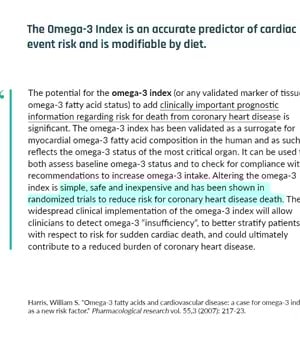DHA vs EPA: Which is better?
Sources:
When comparing DHA and EPA, the two prominent types of omega-3 fatty acids, it's not necessarily about one being 'better' than the other; rather, it's about how they both contribute to health through different mechanisms and effects.
Dr. Rhonda Patrick and Dr. Bill Harris acknowledge that there is some controversy around the effects of DHA and EPA. Dr. Harris mentions that there has been an effort by those promoting EPA-only products to vilify DHA, suggesting that it might negate the positive effects of EPA. However, he disagrees with this notion and stresses that there isn't evidence to support the claim that DHA counteracts the effects of EPA. He illustrates the need for clinical trials with separate arms for EPA alone, DHA alone, a combination of both, and a placebo to clarify their individual and combined effects 1.
Dr. Patrick discusses the roles of both DHA and EPA in resolving inflammation, noting that DHA generates different metabolites involved in resolving inflammation, and EPA directly affects inflammation through other processes. She also speaks to the importance of both DHA and EPA for brain health and points out preliminary evidence that EPA supplementation can assist with depressive symptoms ;cite[chunk_127536]. Moreover, focusing on the role of DHA in maintaining membrane fluidity, Dr. Harris elaborates that DHA is found in membranes in about four times the amount of EPA typically 2.
It is also highlighted that both DHA and EPA have benefits such as lowering all-cause mortality, slowing telomere attrition which is associated with aging, and maintaining cell membrane fluidity critical for neuronal function 3. Dr. Patrick points out that EPA and DHA can be measured in both plasma omega-3 or phospholipid omega-3 forms, and Dr. Harris explains that while the plasma and red blood cell levels of omega-3 correlate, the numerical values differ, which can be confusing when setting targets for omega-3 intake 4.
In summary, both DHA and EPA are crucial for health in different ways, and more research is suggested to fully understand their individual and combined benefits.
RELATED QUESTIONS


